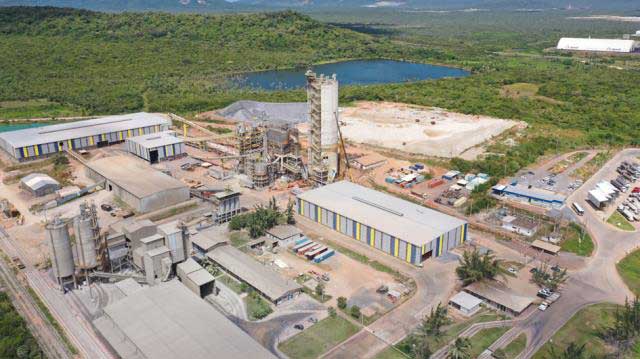Votorantim Cimentos’ new production line at the Pecém Industrial and Port Complex in Brazil is operational. As a result of the expansion, the site now has a production capacity of approximately 1 million tonnes of cement per year compared to a previous capacity of 200,000 tonnes annually.

The producer invested R$ 200 million in the expansion project, which was constructed over three years and, in line with the company’s sustainability strategy, prioritized energy efficiency and industrial automation. A new vertical cement mill reduces the kilowatt per hour consumption by 30%, while a closed refrigeration circuit reduces the production of effluents. This system reuses water to cool the equipment, providing a 90% reduction in the consumption of water resources. Further, a new cement production process emits 60% less CO2 per tonne than the previous process, benefiting the environment and the planet.
Votorantim Cimentos Global CEO Marcelo Castelli said, “The Pecém expansion project fills us with pride and satisfaction for its technical quality and its contribution to the state’s social, economic and environmental development. Through this investment, we are enhancing our performance and presence in the strategic and important market that is Ceará. Our new and more modern and efficient plant will enable us to increase our production and distribution capacity and the quality of our service to our customers in the region.”
The new production line will manufacture Poty Cement – All Constructions (in Portuguese, Cimento Poty – Todas as Obras). Several studies were carried out to ensure that the product would offer more protection against sea air.”We are offering to our customers a product that, in addition to its recognized quality and performance, incorporates improvements to meet the needs of different types of construction projects, from foundation to finish,” said Hugo Armelin, director of sales and marketing at Votorantim Cimentos. “We are very happy to improve our processes to offer products that meet the specific needs of the Ceará market, in addition to having less environmental impact.”



